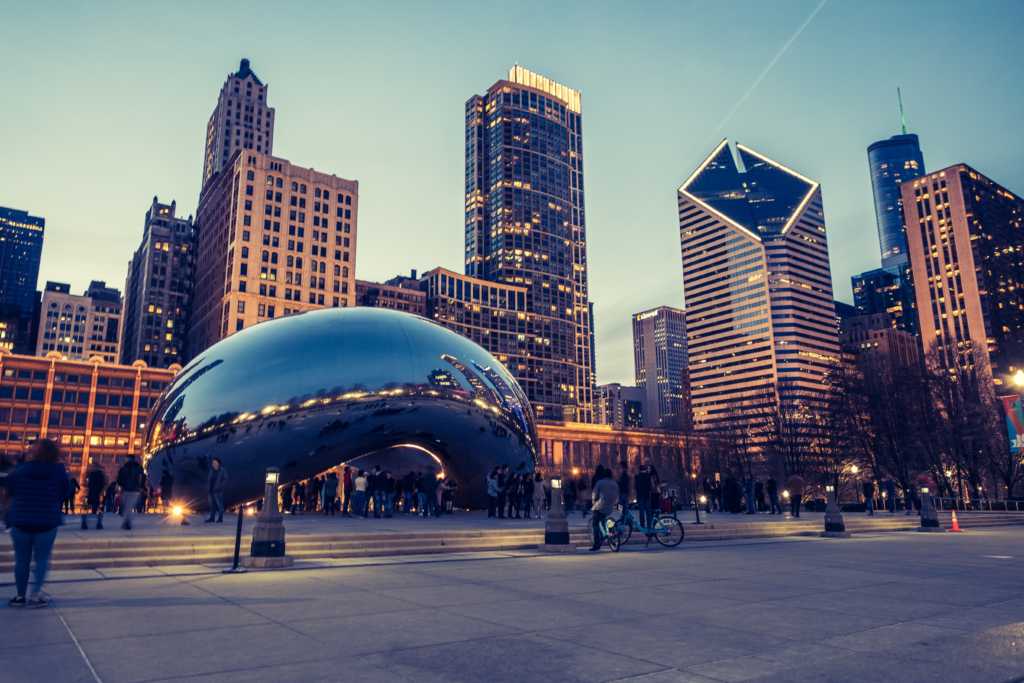Students from Wheaton College in Illinois are suing the city of Chicago after they were barred from evangelizing in Millennium Park in downtown Chicago.
The four students, who are members of the Chicago Evangelism Team sponsored by the Office of Christian Outreach at Wheaton College, are suing the city government for restricting their constitutional rights to freedom of speech and religion.
The students, who are represented by the religious freedom law firm Mauck & Baker, LLC, filed a lawsuit after they were restricted from evangelizing at Millennium by park security.
“We think this lawsuit is as much about our clients as it is the right of the public to receive literature and receive speeches,” the plaintiffs’ attorney, John Mauck said.
“The public park and sidewalks are the traditional places, and the only places, where you can freely communicate and now they want to take that away,” he added.
The background
The Chicago Evangelism Team, who spent Friday nights evangelizing in the 24-acre park, exists to “proclaim the Gospel in the city of Chicago to whomever we find there.”
“We desire to exercise our constitutional right to free speech through sharing the Gospel of Jesus Christ,” Matt Swart, a sophomore at Wheaton said. “For the sake of every citizen who desires to make use of the rights our forefathers bled for, we pray that the City of Chicago amends their unconstitutional code.”
On Wednesday morning, Mauck & Baker, LLC filed a motion in federal court to fight rules that Millennium Park put in place that stands in opposition of the First Amendment.
Sorin Leahu, associate attorney at Mauck & Baker, LLC told The Christian Post “By its nature in history, public parks have always been completely open to speech activities.”
According to the legal complaint filed against the students cites one restriction regarding “disruptive conduct.”
The policy reads that “[a]ny conduct, even if not specifically noted in these rules, is prohibited in the park if it interferes with or disrupts another visitor’s peaceful enjoyment of performance or amenity in the Park …”
Last year, on December 7, the Chicago Evangelism Team was asked to leave the park after guards told them they could not preach or hand out literature to people there. Moments later they were told by park supervisors that what they were doing was considered “solicitation,” and it was not allowed.
According to the students, over the following weeks, the students returned, but “continued to face hostility and opposition from Park employees frustrating their ability to preach or distribute free religious literature.”
“Park employees, for example, prohibited the students’ activities near ‘the Bean’ [tourist attraction] directing them to other parts of the Park, only later to prohibit them from those parts of the Park as well,” the complaint reads.
“On at least one occasion, a Park employee informed the Students that they could not discuss religion in the Park and ordered the Students to leave the Park if they wanted to talk about religion.”
Then on April 5, things changed.
Christopher B. Deans, a recreational operations manager at the park, approached the students one night and told them the park had created new rules, and they could no longer preach on property.
They were told they had to get approval from two separate city departments before preaching in the park, as well as abide by their new park division map.
According to the Chicago Tribune, “One new rule divided the park into 11 ‘rooms,’ or sections, and prohibited ‘the making of speeches and passing out of written communications’ in 10 of the 11 sections, according to the city’s website.”
The rule made it so people could only hand out literature and give public speeches in the northwest corner of the park in Wrigley Square.
“This isn’t just about evangelists,” Mauck said. “This is for politicians campaigning, political activists and whoever else wants free speech.”
What do the students have to say?
Gabriel Emerson, one of the plaintiffs and a sophomore at Wheaton pointed out that he has been given a gift from God, and he needs to share it.
“I have this gift that’s so great,” Emerson said. “Why would I put it in a box and keep it to myself?”
Matt Swart added: “I had a lot of tragedy go on in my life, but through that, I’ve seen the goodness of the Lord and how real the hope of heaven is in the midst of a broken world very acutely.”
Another student, Jermey Chong, pointed out that “an essential part of Christianity is sharing the gospel.”
“We are there to share the greatest news of all time, which is that sinful people can be saved, and they can be reconciled to God by faith in Jesus who died on the cross to save all sinners,” Chong added.
These days, the students don’t evangelize in Millennium Park.
“We didn’t want to get to this point,” Swart said. “Our desire is simply to share the gospel in the park.”
In a statement to The Chicago Tribune, Bill McCaffrey, a spokesperson for the city’s law department said that he could not comment because the department had not received a copy of it yet.
“However, the new rules protect First Amendment rights while also respecting the rights of patrons to use and enjoy the park,” McCaffrey said in an email.



